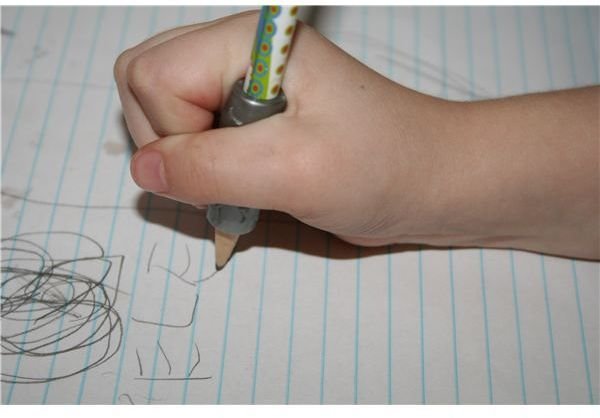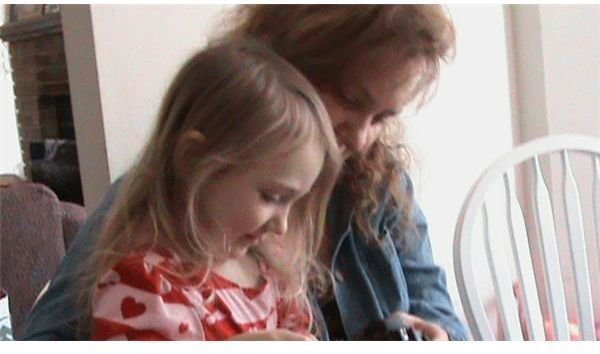At What Age Should I Begin Homeschooling my Child? Tips on Deciding if Your Child is Ready to Begin Formal Instruction
How to Know When to Begin
As long as you are within the requirements of the law, the decision as to when you officially begin to homeschool is up to you. Is it best to homeschool from birth, school preschool, or wait until the required age? Making the decision comes with many pressures to do the “right” thing.
Those who believe early education is key stand just as firm on their beliefs as those who think it is best to hold off before beginning schooling. Some homeschooling parents discover that, within the same family, one child needs an early start, while the other children need to take some time before plunging into education.
Factors to consider in making your decision include:
- Homeschooling laws
- Child’s temperament
- Parent’s temperament
- Older or younger siblings
- Research of ages and stages of child development
- Teaching approach
- Readiness skills
Is it Legal?
Every state, or country, has its own laws regarding the age required to start formal education. These laws are called compulsory school age requirements. When a child reaches the compulsory age, the homeschooling parent needs to begin record keeping, logging hours, and reporting, as required by the state where she homeschools.
According to a 2005 Education Commission of the States report, within the United States, the age requirements to start school can range from as early as 5 years old to as late as 8 years of age. Before your child reaches the required age, the amount of formal education you take on is up to you.
Know Your Child and Parenting Temperament
Parenting is an eye-opening experience. Each child begins life with a slightly different approach, preference, and attitude. Knowing how to make the most of your child’s individual needs can mean the difference in how quickly, and how well he or she learns.
Off to an Early Start:
Some parents are anxious to get started with formal education. These types of parents:
- Thrive on keeping journals
- Keep records of milestones
- Love to plan
They may have a child who learned to read at the age of three, loves to do workbooks, and is tugging the parent to show them more. If this is the case, it may be best to follow your child’s lead and offer some degree of formal education. Parents choose early learning due to:
- Cultural influences
- Personal experiences
- Hopes
- Dreams
- Wanting to make the most of every minute
- Pressures
- Fears
- Studies of early learning success
- Proving your teaching skills
- Proving your child’s competency and ability to learn
- Wanting to give your child a strong foundation
Slow it Down:
For others, starting a formal regiment of textbook curriculum early may not be the best option. As the years go on, both the parent and child grow tired of the planning and the demands. These parents may feel as if they are constantly encouraging their child to achieve yet another milestone, ever so slowly.
After watching a child learn a new skill, such as walking, many parents begin to realize that the child will learn faster and more effectively when he is ready. These parents believe that early formal instruction will only frustrate the learning process, for both the parent and the child.
Homeschooling More than One Child
A child is capable of learning many things before he is officially “ready” for formal education. Younger siblings, in a homeschooling family, tend to desire to be part of the school day. Homeschooling parents of multi-grade level students often find it easier to start all of the children on the same schedule of learning. This means that, in a sense, even a toddler is attending formal school right alongside his older siblings.
Ages and Stages Research
Early childhood learning organizations, such as Thrive to Five, and Parents As Teachers, are designed to help children get off to a good start in their development and education. While these official early learning groups center around the idea that learning starts at birth, they promote learning through every day encounters rather than through formal textbook-style teaching.
Behavior research biologist, Jean Piaget, spent many years observing children in an effort to discover when children learn specific skills. His findings resulted in detailed age groupings of developmental and cognitive stages. These findings are useful in determining whether or not a child is ready to move on toward formal learning. He discovered that, in general, children go through the following Stages:
Sensorimotor (Birth to Age 2)
From the moment the child is born, a great deal of learning is going on. This learning develops naturally. However, care givers can assist the process through providing toys and interaction. The child learns to differentiate himself from objects around him, discovers that his actions create an intentional response, and begins to understand object permanence (an object will still be there even if he cannot sense it).
Pre-Operational (Age 2 to Age 7)
The child learns how to use language, recognizes that objects have words, and groups objects based on an individual feature. She will have difficulty understanding the views of others, as her thinking is still centered around herself.
Concrete-Operational (Age 7 to Age 11)
Before this stage, intense formal learning may prove to be difficult. It is during this phase that a child begins to think logically about the things that he encounters. He begins to understand numbers as more than just counting and can order and classify objects by several characteristics.
Formal Operational (Age 11 and older)
By 11 years of age, most children begin to think logically about abstract concepts. They also begin to be concerned with the future, ideological problems, and hypothetical ideas.
Teaching Approaches Support Later Formal Learning
There are many styles of teaching. None suggests that no learning take place during the early years, just in a more informal manner. Most recommend laying a foundation of phonics, writing, basic math, and a love for books from the start.
Classical Education (Teaching the Trivium):
In the Classical education approach, children are taught based upon their grade level and age grouping. This age grouping is referred to as the Trivium:
- Grammar Stage (Grades 1-5) Learning is mostly done through memorization.
- Logical Stage (Grades 6-8) The child begins to question why.
- Rhetoric Stage (Grades 9-12) The child’s questioning matures to higher levels of critical thinking and analyzing.
In their book, Teaching the Trivium: Christian Homeschooling in a Classical Style, Laurie and Harvey Bluedorn suggest that forcing formal academic learning onto a child before the age of 10 “is not an efficient use of your time, is not going to accomplish all of the good which you desire, and may actually work some harm.”
Better Late Than Early:
Raymond and Dorothy Moore use psychological studies, in Better Late Than Early, to show that most children are not ready for formal education until around 8 to 10 years of age. They suggest that this style of learning should begin, at the earliest, at around age 7. The underlying concept in this approach is that a child will learn quickly, and more effectively, when they are ready. By waiting, you will reduce the frustrations of a child attempting to tackle concepts he is not ready to tackle.
Is Your Child Ready?

Readiness Testing:
Some homeschool curriculum companies offer readiness and placement testing. Rod & Staff homeschool curriculum begins their formal curriculum at the first grade level. Before you order their books, the company recommends that your student take their school readiness test.
Placement Testing:
Other homeschool publishers, such as Alpha Omega, offer placement testing to determine what grade level of curriculum your child is ready to begin.
Online Readiness Test:
Get Ready for School.com offers a readiness test that asks questions to determine whether or not your child is “ready” for school. Some of the questions they ask to determine school readiness are:
- Can your child write his name?
- Does your child recognize primary colors by name?
- Can your child trace basic shapes?
- Does your child know the alphabet?
- Can your child count 1-10?
- Can your child dress herself?
- Can your child cut with safety scissors?
Pressure on Both Sides
When you speak to others about the proper age to start homeschooling, there is pressure on parents from both aisles of thought. The ones who believe in waiting to teach, feel pressure that their child may never catch up. On the other hand, some may put too much on their child at a young age and burn out the child’s enthusiasm to learn.
Take the pressure off by focusing on your child’s needs. Give him enough to challenge, but not too much to frustrate. Constantly be willing to be flexible enough to speed up or slow down as needed.
References
- Bluedorn, Harvey and Laurie, Teaching The Trivum: Christian Homeschooling in a Classical style, Trivium Pursuit, May 2001
- Moore, Raymond and Dorothy, Better Late Than Early: A New Approach to Your Child’s Education, Reader’s Digest Association, August 1989
- Photos Credit: Tere Scott
- Boeree, C. George, “Personality Theories: Jean Piaget”, http://webspace.ship.edu/cgboer/piaget.html
- Alpha Omega Publications, http://www.aophomeschooling.com/search-engine.php?q=placement+test
- Tomlinson, Jeffrey, “Compulsory School Age Requirements”, http://www.ecs.org/clearinghouse/50/51/5051.htm
- Readiness Test, Eastern Mennonite Publications
- Get Ready For School, http://www.getreadyforschool.com/kindergartenreadiness.php
